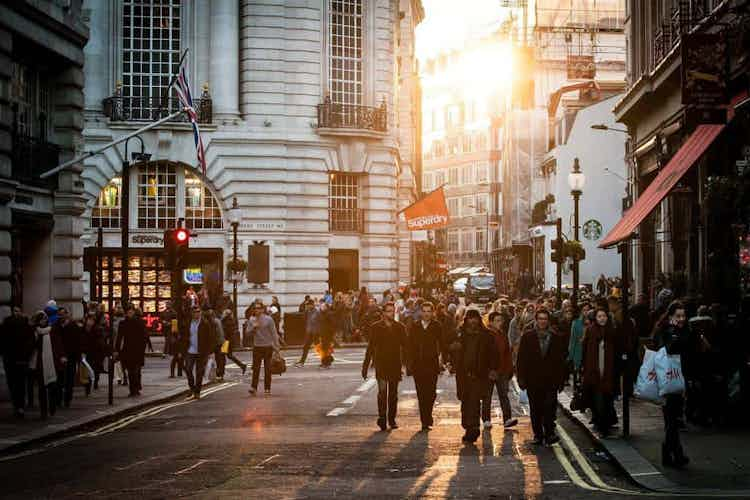Recently released figures from the Office for National Statistics (ONS) indicate the UK economy partially recovered in July, with the gross domestic product increasing by 6.6%. While indeed a positive sign, analysts remain cautious about the numbers signalling any sustained signs of growth.
The growth in GDP can be attributed to the partial reopening of certain businesses in July. Pubs, restaurants, salons and leisure venues saw an increase in customers in the summer months, spurred on by a relaxation in local lockdown restrictions. In fact, as per Thomas Pugh, an economist at Capital Economics, the accommodation and food services sector saw a “whopping” increase of 140.8% between June and July.
While the latest figures mark the third consecutive month the UK economy has expanded, the rate of recovery has not been as strong as in previous months. The GDP is still well below the level it was at in February, in the early stages of the pandemic. Additionally, the pace of recovery in July was at a slower rate than the 8.7% expansion observed in June.
Analysts expect that the August numbers will continue to show positive signs as a result of government programmes such as “Eat Out to Help Out” and the Coronavirus Job Retention Scheme. However, the imminent tapering of these schemes in October is expected to trigger nationwide mass unemployment that could impact the speed of recovery.
Former Prime Minister Gordon Brown recently commented on the winding up of the furlough scheme, saying it was a "cliff-edge" that could prompt "a tsunami of unemployment". He also proposed the government introduce a short-time working scheme, similar to programmes in France and Germany, which would allow businesses to reduce employees' working hours while keeping them employed, with the state contributing to their salaries.
Other factors could also impact the economy’s recovery. For example, uncertainty around Brexit is expected to result in a slow recovery in business investment. The ongoing spike in coronavirus cases which is resulting in local lockdowns in many parts of the country is also expected to affect spending in sectors that involve any social interaction.
The ONS has said that the UK has only just begun to recover the losses incurred as a result of the pandemic. Any tapering in the recovery rate could mean that the after-effects of the recession could continue to be felt well into 2021.






